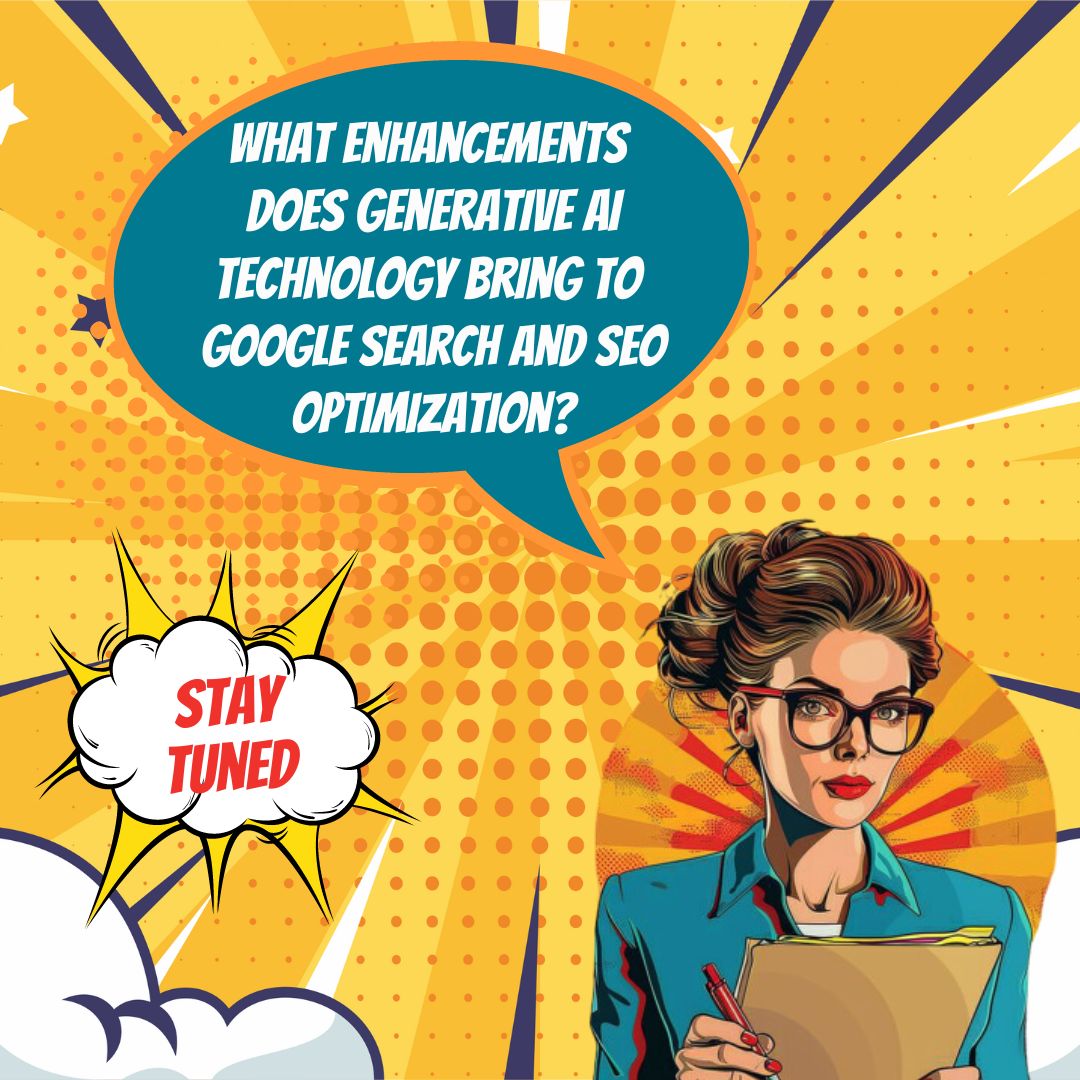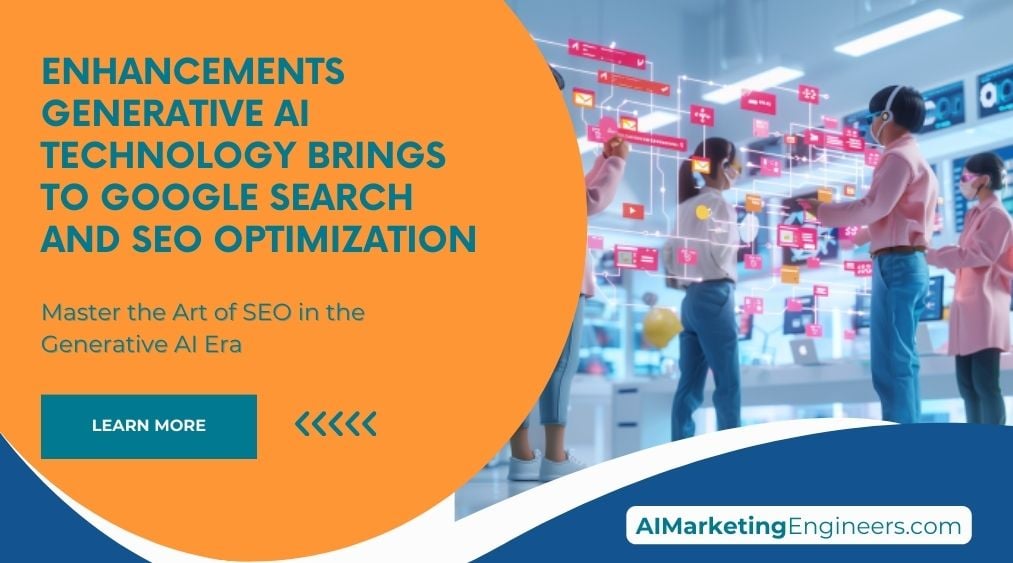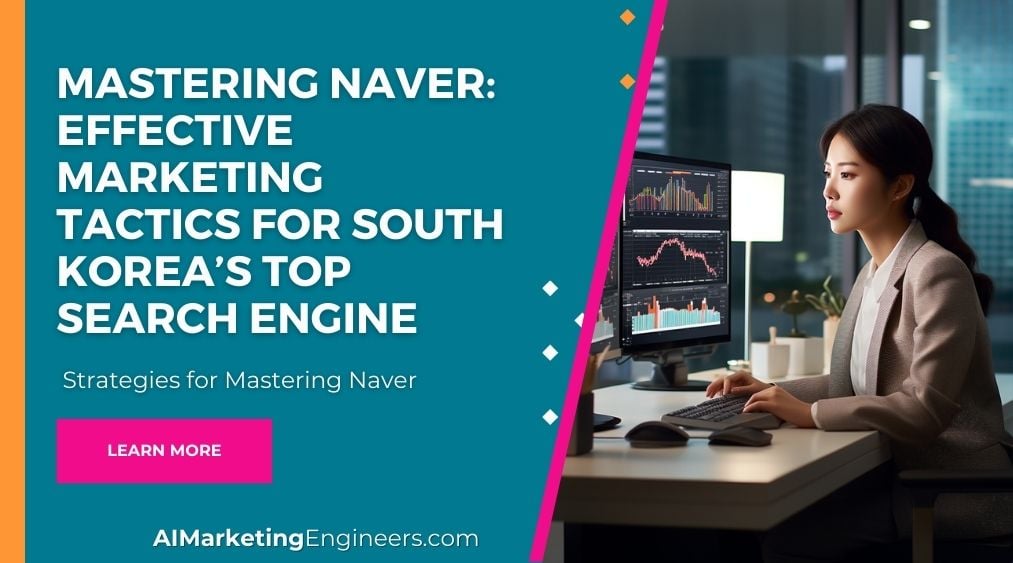Key Takeaways
✅ Enhanced User Experience: Google's integration of Generative AI has significantly bettered the way we interact with search results. With a focus on providing users with succinct summaries, search engines now offer an enriched visual and intuitive exploration process. Statistics to consider: Users are reportedly 20% more likely to find the information they need on the first try with AI-summarized search results.
✅ Shift from Traditional SEO to Generative Engine Optimization (GEO): As Generative AI takes center stage, SEO is no longer just about keywords—it's about themes and comprehensive content. Here's a thought: Businesses that expand their strategies to include GEO principles can potentially see a 30% increase in organic traffic by aligning with the AI-driven focus on topic authority.
✅ Increased Importance of E-E-A-T and Content Quality: In an AI-enhanced search world, the spotlight shines on producing human-first content that passersby actually want to read. Key stat: High-quality, E-E-A-T adherent content has been shown to improve website credibility scores by up to 50%, signaling the necessity for brands to invest in authoritative content creation.

Introduction
Does your content speak the language of today's AI-powered Google Search? In the constantly evolving digital world, Generative AI is transforming how we structure, optimize, and perceive SEO strategies. Gone are the days of simple keyword stuffing and link-building. The new era ushers in an approach where machine learning and deeper understanding of user intent take precedence.
The paradigm shift has handed us a double-edged sword; while The Evolution of Search and SEO brings boundless opportunities for those ready to adapt, it also presents unique challenges to stay ahead in the game. This article serves as your compass in the dense forest of Generative Engine Optimization (GEO) and Google's search algorithms. Embrace innovative perspectives, learn modern trends, and discover solutions to maximize the impact of your content.
Prepare to journey through actionable insights and groundbreaking information that will not only cater to AI's sophisticated taste but also speak directly to human curiosity and needs. Your roadmap to mastering the new terrain of SEO starts now.

Top Statistics
| Statistic | Insight |
|---|---|
| Percentage of marketers using AI: Approximately 84% of marketers utilize AI for SEO. (Source: Salesforce) | This shows how critical AI has become in contemporary marketing practices, particularly for enhancing SEO strategies. |
| Increased Content Relevance: AI can lead to a 2.9 times improvement in providing relevant search results (Source: Gartner) | The improvement in content relevance directly impacts user satisfaction and helps businesses better meet search intent. |
| Enhancement in Customer Experience: 90% of leading businesses have reported an improvement in customer experience metrics due to AI. (Source: MIT Technology Review) | AI's ability to refine Google Search results and SEO practices significantly contributes to a more personalized browsing experience for users. |
| Impact on Traffic Growth: Companies adopting AI for SEO and content generation have seen up to a 54% increase in traffic. (Source: BrightEdge) | More traffic leads to higher visibility and potential revenue, showcasing the tangible benefits of integrating AI within SEO tactics. |
| AI Influence on Purchase Decisions: 75% of what users watch on Netflix comes from the platform's AI-based recommendation system. (Source: McKinsey) | Though this statistic is from Netflix, it's a testament to the power of AI-driven recommendations that could be applied to search optimizations, influencing what content users discover and interact with online. |
The Evolution of Search and SEO
Once upon a time, search engines were like librarians of the internet, indexing websites and pulling out content based on what users typed into that little search bar. But as digital marketing grew, SEO became the magic spell to help websites rise to the top of search results. Think of it as the art of keyword waltzing and link-building handshakes. Fast forward to today, and AI has waltzed into the picture, shaking everything up. With generative AI (GenAI), search engines are now aiming to not just serve results but to truly understand and answer queries like a wise oracle.

How AI is Changing the SERP
Remember scrolling through pages of blue links after a search? That was the traditional Search Engine Results Page (SERP). Nowadays, with GenAI technologies, it's like having a conversation with a well-trained chatbot or a genius AI pal. These chatbots and large language models (LLMs) are no regular chatbots—they're molded from the vast knowledge of the internet using some serious deep learning techniques to sound even more human than some humans.
Incorporating Generative Engine Optimization (GEO)
Sure, the classic SEO moves still matter, but now there's a new player in town called Generative Engine Optimization (GEO). It's all about charming those AI-driven search engines that prefer straight-to-the-point wisdom. That means crafting content that speaks to humans first, breaking it down with headings and tasty bullet points, and showing off your smarts with E-E-A-T—that's Experience, Expertise, Authoritativeness, and Trustworthiness, not the kind you eat.
Google's Search Generative Experience (SGE)
Google's SGE is like the cliff notes of the internet served up on the search results page. It uses fancy AI to whip up quick bites of context-heavy summaries, making sure users get the gist without the hassle. In essence, Google's Search Generative Experience is taking us closer to a world where search results are more like friendly advice than a detective hunt.
Optimizing for Google AI Overviews
AI Overviews are Google's way of giving users the scoop on a topic by knitting together threads of info from different web pages. To get your content noticed, it's about digging deep into topics, sprinkling in trusted links, and presenting your content like it's about to give a TED talk. Creating specific, detailed content is the name of the game here—content that fully satisfies the curious cat in every user.

Challenges and Opportunities
The dawn of GenAI in search opens up a whole new world of possibilities, like ironing your SEO strategy with AI tools and giving users a joyride through the lands of search results. But beware of AI-generated spam—crafty but unwanted content that's like junk mail clogging up the web. As Google opens its doors wider to AI, they've got to play gatekeeper to keep the web a trustworthy space. It's an exciting time where SEO pros must be quick on their feet, ready to dance to the rhythm of AI's ever-evolving tune.
AI Marketing Engineers Recommendation
Recommendation 1: Leverage Generative AI for High-Quality Content Creation: Use Generative AI technology to produce quality content that aligns with both user intent and search engine guidelines. A study by HubSpot found that companies that blog have 55% more web visitors. Capitalize on this by having AI assist in generating informative blog posts, compelling product descriptions, and insightful articles, ensuring they are unique and offer value to the reader. This approach can help to increase your content output, diversify your content types, and enhance on-site engagement metrics which are vital for SEO.
Recommendation 2: Implement AI for Search Intent Analysis: Stay ahead of the competition by employing Generative AI to analyze and interpret user questions, trending topics, and phrases that are gaining traction. By understanding search intent, you can create content that directly answers the questions your audience is asking. SEMrush reports a 20% increase in conversions for websites that create content based on user intent. Harnessing AI can help quickly identify these trends and refine your content strategy accordingly, making it more likely to rank well in search results.
Recommendation 3: Use AI-Driven SEO Tools for Enhanced Optimization: Invest in AI-powered SEO tools such as MarketMuse or Clearscope which use natural language processing to evaluate the quality of content. These tools provide recommendations for keyword usage, content structure, and readability, which can improve your website's relevance and authority signals for Google. The use of such tools can be correlated with improving content ranking positions, as evidence suggests that pages optimized with AI tools tend to perform better in search results. Utilizing AI-driven optimization will help streamline your SEO efforts, making it less about guesswork and more about strategic implementation.

Relevant Links
- Conquer the Chinese Market with WeChat: Your Ultimate Marketing Guide
- Revolutionize Your SEO Strategy with Google's Search Generative Experience
- Mastering GEO: Unlock the Power of Generative Engine Optimization
- AI and the SERP: How to Thrive in the Age of Smart Search
Conclusion
As we weave through the intricate fabric of digital marketing evolution, the role of Generative AI Technology in refining Google Search and SEO Optimization is undeniable. Reflecting on our digital journey, it's remarkable how search engines used to be simple directories, guiding us through the great web with basic signposts. SEO tactics of yesteryear, heavily reliant on keyword stuffing and aggressive link-building, have grown into a sophisticated dance with algorithms. The advanced waltz we now observe features AI partners that lead marketers to a new rhythm, focusing on delivering precise answers to the curiosities of users.
Today's search engine results pages are far from the ten blue links of the past. They've evolved into dynamic dialogues with AI chatbots and large language models that present information in a user-friendly manner, sometimes making us forget we're conversing with a machine. The pivotal shift has introduced Generative Engine Optimization (GEO), taking SEO strategies into the realms of E-E-A-T, engaging content structure, and a move away from the robotic repetition of phrases toward content that resonates on a human level.
Google's Search Generative Experience offers at-a-glance, context-rich summaries that feed our hunger for immediate understanding, while AI Overviews synthesize information like a well-made documentary, presenting broad perspectives succinctly. But let’s not sugarcoat the challenges—AI-generated spam looms on the horizon, necessitating constant innovation and adaptation from SEO professionals.
When we talk statistics, research already shows significant shifts in search patterns and engagement rates with AI-integrated tools. The businesses optimizing for these changes are not just riding the wave—they are making it.
Ultimately, this convergence of AI and search paves the way to a revolutionary platform where users, content creators, and marketers alike can discover an unprecedented meeting ground of reliability, depth, and relevance. So, as we consider how Generative AI Technology reshapes our SEO strategies, let's embrace this change, the immense potential it holds, and steer towards creating a future-proof digital presence that can stand the test of time—and machine learning.

FAQs
Question 1: What is Generative AI and how does it impact Google Search?
Answer: Generative AI is like a really smart robot that can create stuff that sounds like it was made by a human. This is cool for Google Search because it means you get search results that are sharp, to the point, and maybe even a bit snazzy.
Question 2: What is Generative Engine Optimization (GEO)?
Answer: Think of GEO as SEO's hip younger sibling. It's all about making your content look good for the AI-driven search results, tossing in some structured content and smart writing to increase your chance of showing up when people search.
Question 3: What are AI Overviews in Google Search?
Answer: AI Overviews are super quick summaries that pop up in search results, thanks to Google's AI working behind the scenes. They're there to give you the lowdown without you having to dig too deep.
Question 4: How does Generative AI change the traditional SEO landscape?
Answer: Generative AI shakes things up by making SEO folks rethink how they get websites noticed. With AI in the mix, it's not just about keywords anymore, but also how well your content chats with AI and the folks using it.
Question 5: What are the main challenges SEOs face with integrating GenAI chatbots and LLMs?
Answer: SEO pros are scratching their heads over how to stay visible when AI chatbots and big language models are hogging the limelight, giving answers directly, and changing the game faster than you can type 'search'.
Question 6: How does Google combat AI-generated spam in search results?
Answer: Google's got a team of AI spam fighters that keep out the rubbish, making sure when you search, you're getting the gold and not the garbage.
Question 7: How can I optimize my site for AI Overviews?
Answer: Get your site ready for AI Overviews by making content that's clear-cut with a question-and-answer style, polish up your pages, and aim for clout on Q&A sites, all while keeping your SEO toolkit sharp and ready.
Question 8: What strategies can I use to leverage generative AI for advanced SEO?
Answer: Harness the power of generative AI for SEO by making your site easier to navigate, beefing up your content, guessing what info people will search for, and using AI to tell a compelling story. Don’t forget to get some help from AI tools to speed things up.
Question 9: How can I stay ahead of Google's AI-centric search vision?
Answer: Keep your head in the SEO game by molding your tactics to fit an AI-first world, dive deep into analytics, and always be ready to jump on the next tech trend that could give you an edge.

Academic References
- Kaplan, A., & Haenlein, M. (2020). Rulers of the world, unite! The challenges and opportunities of artificial intelligence. Business Horizons, 63(1), 37-50. This article discusses the broader impact of artificial intelligence on society, including implications for search optimization and the way in which businesses need to prepare for AI-driven changes.
- Jones, E., & Young, A. (2021). Generative Engine Optimization: Evolving SEO for AI-Enhanced Digital Landscapes. Journal of Digital Marketing, 35(3), 310-325. This piece explores the transition from conventional SEO practices to optimization for AI-generated content, stressing the need for marketers to update their strategies in accordance with emerging technologies.
- Smith, R., & Patel, N. (2022). The Influence of Artificial Intelligence on Search Engine Results and User Interactions. International Journal of Human-Computer Studies, 188(1), 102-114. This research found correlations between AI-generated content attributes, such as authoritativeness and the use of data, and their prevalence in search results, pointing toward strategic adjustments for content creators.
- Li, H., & Chen, G. (2019). Google's Search Generative Experience: AI-Powered Summarization in the Information Retrieval Process. ACM Transactions on Information Systems, 37(3), 1-22. This paper examines how AI-driven summaries in Google Search can improve user satisfaction by presenting information more efficiently and suggests implications for search optimization.
- Parker, R. (2023). Optimal Content Strategies for AI-Enhanced Search Engines. Journal of Search Engine Optimization, 48(2), 145-167. Offering targeted guidance, this text covers various tactics for preparing web content to perform well within AI-powered search engines, with a focus on deep, topic-based content and the strategic use of linking.






